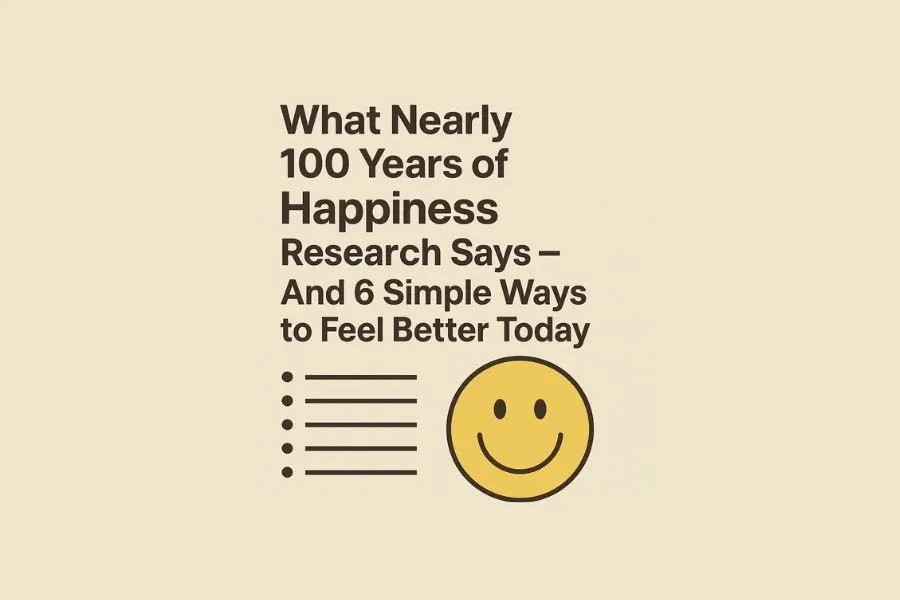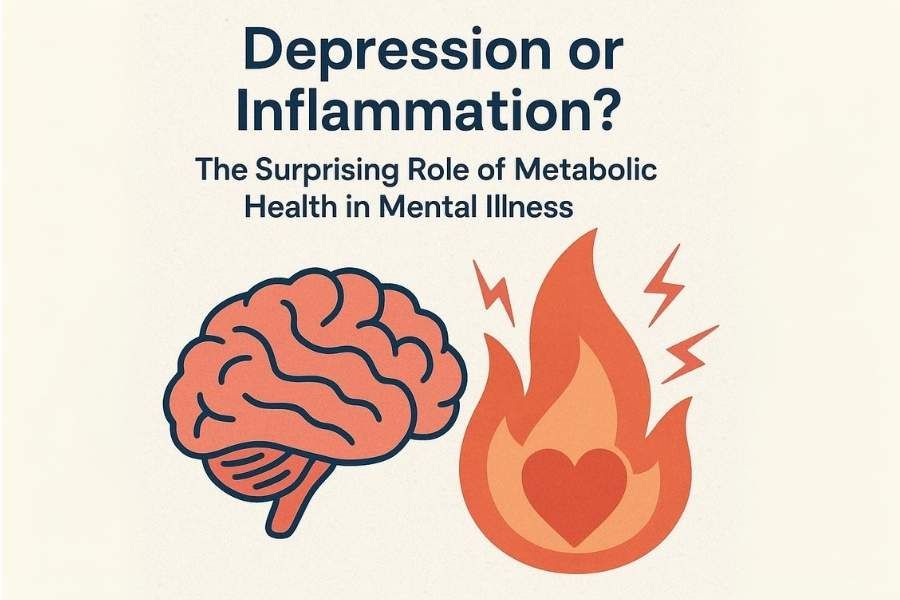Why Can't I Feel Happy Anymore? Causes & Treatments for Emotional Numbness
By Mehboob Ali Nazarani, M.D.
Published February 1, 2025 · Last reviewed February 1, 2025 · 4 min read · Depression
Have you ever felt like nothing excites you anymore?
Maybe your favorite food doesn't taste as good, your favorite music doesn't move you, or you don't feel like hanging out with friends. This feeling of emotional numbness or loss of interest can be overwhelming, making it difficult to enjoy life. If this sounds familiar, you may be experiencing something called anhedonia, which is the inability to feel pleasure or joy.
What is Emotional Numbness (Anhedonia)?
Emotional numbness, or anhedonia, is when someone loses interest in activities they once enjoyed. It's not just feeling sad—it's feeling disconnected from pleasure and happiness.
There are two types of anhedonia:
- Anticipatory Anhedonia: You don't look forward to things anymore.
- Consummatory Anhedonia: Even when you do something enjoyable, you don't feel happy.
Anhedonia is a symptom of many mental health conditions, including depression, anxiety, PTSD, and bipolar disorder. It can also occur due to chronic stress or trauma.
Why Do I Feel This Way?
What Causes Emotional Numbness?
Several factors contribute to feeling emotionally numb or disconnected from joy:
- Brain Chemistry Imbalances: When brain chemicals like dopamine and serotonin are not working properly, it becomes harder to feel motivated and happy.
- Chronic Stress & Trauma: Long-term stress and past trauma can rewire the brain, making it difficult to experience pleasure.
- Exposure to Trauma & Early Life Abuse: Childhood trauma, such as emotional or physical abuse, can shape brain development and impact the ability to feel joy later in life.
- Depression & Anxiety: If you have depression or severe anxiety, anhedonia is often a core symptom.
- Social Isolation & COVID-19: Many people struggled with emotional numbness due to pandemic-related isolation.
- Bipolar Disorder: Anhedonia can occur during depressive phases of bipolar disorder, affecting motivation and mood.
How Does Emotional Numbness Affect Your Life?
How Does It Impact Mental and Emotional Health?
When you experience emotional numbness, life can feel flat and unexciting. Common challenges include:
- Worsening depression and anxiety symptoms
- Feeling disconnected from loved ones
- Lack of motivation to engage in activities
- Increased risk of social withdrawal and loneliness
Can Emotional Numbness Affect Physical Health?
Yes, it can. People experiencing anhedonia often struggle with:
- Low energy and chronic fatigue
- Disrupted sleep patterns
- Loss of appetite or overeating
- Neglecting self-care habits
How Can I Feel Joy Again?
What Treatments Can Help with Emotional Numbness?
The good news is that emotional numbness and anhedonia can be treated. Here are some options:
Medications That Help Restore Pleasure
- Vortioxetine (Trintellix): Boosts dopamine and serotonin.
- Bupropion (Wellbutrin): A dopamine-focused antidepressant that improves motivation.
- Dextromethorphan-Bupropion: A novel medication that enhances mood and motivation.
- Ketamine Therapy: Rapidly reduces symptoms of treatment-resistant depression.
- Antipsychotics (Cariprazine, Lumateperone): Beneficial for anhedonia related to bipolar disorder.
Therapies That Can Help
- Behavioral Activation (BA): Encourages people to slowly reintroduce enjoyable activities into their lives.
- Cognitive Behavioral Therapy (CBT): Helps reshape negative thought patterns contributing to emotional numbness.
- rTMS (Repetitive Transcranial Magnetic Stimulation): A non-invasive brain stimulation therapy that reactivates the brain's reward system. This is a service we offer at our office—learn more here.
- tDCS (Transcranial Direct Current Stimulation): Uses mild electric currents to improve brain function.
Lifestyle Changes That Can Help
- Exercise: Boosts dopamine and serotonin naturally.
- Spending Time in Nature: Reduces stress and improves mental clarity.
- Healthy Eating: Supports brain function and mental well-being.
- Socializing: Even small social interactions can help retrain your brain to experience joy.
Important Points to Remember
- You are not alone—emotional numbness is a common symptom of mental health conditions.
- Anhedonia is treatable with the right combination of therapy, medication, and lifestyle changes.
- Seeking help is essential—talking to a doctor or therapist can make a huge difference.
- rTMS is a promising non-invasive treatment for those struggling with persistent anhedonia. Contact our office to explore this option.
Final Thoughts
Feeling emotionally numb or disconnected from life can be frustrating, but there is hope. With the right treatments and support, you can regain your ability to feel joy and pleasure again. If you're struggling, don't hesitate to reach out to a mental health professional.
Disclaimer: This article is for informational purposes only and should not replace medical advice from a qualified healthcare provider.
This article is part of our approach to whole-person psychiatric care. If this resonates with your experience, our team is here to help.

Mehboob Ali Nazarani, M.D.
Board-Certified Psychiatrist
Mehboob Ali Nazarani, M.D.
View full profile →Related Articles
 Depression
DepressionMehboob Ali Nazarani, M.D. · Mar 2, 2026 · 5 min read
The Science of Awe: How Wonder Reduces Stress and Supports Mental Health
Research shows that experiencing awe, whether through nature, music, or everyday wonder, reduces stress, eases depression, and improves well-being. Learn practical ways to bring more awe into your life.
Read article Depression
DepressionMehboob Ali Nazarani, M.D. · May 22, 2025 · 2 min read
What Nearly 100 Years of Happiness Research Says — And 6 Simple Ways to Feel Better Today
Discover what the longest-running happiness study reveals about well-being, and learn 6 practical strategies backed by science to boost your happiness today.
Read article Depression
DepressionMehboob Ali Nazarani, M.D. · Apr 17, 2025 · 5 min read
Depression or Inflammation? The Surprising Role of Metabolic Health in Mental Illness
Learn how chronic inflammation driven by poor metabolic health may be fueling your depression, brain fog, and fatigue—and what you can do to reduce it naturally.
Read article